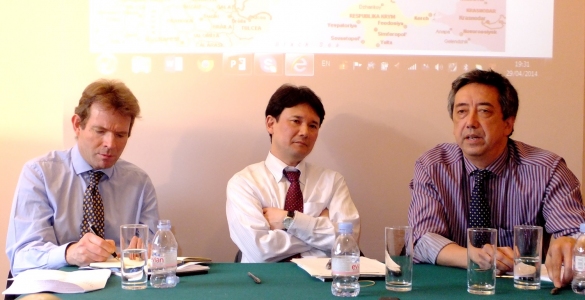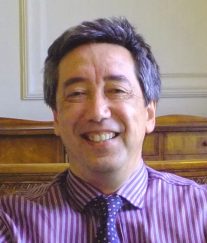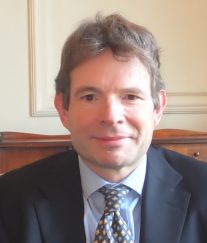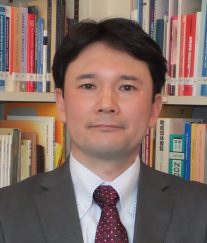 Seminar Series 2014
Seminar Series 2014Tuesday 29 April 2014
6:00pm – 7:30pm
Russia and the Power of Diplomacy: What can the International Community do?
Drinks reception from 7:30pm
13/14 Cornwall Terrace, Outer Circle, London NW1 4QP
Organised by The Daiwa Anglo-Japanese Foundation
This was the third in our 2014 seminar series on “Power”. In the previous seminar, we discussed “soft power”, and the panel concluded that a combination of hard and soft power, namely ‘smart power’, is the most effective way to influence other states in the contemporary world. But what can a weaker state with limited hard power (military force) do to deter other states? Can the international community be effective in pressuring stronger powers like Russia to change course without resorting to hard power? How can the diplomatic efforts of the international community be made effective?
The speakers talked about the diplomatic policies of Japan, the EU and China during the current Ukraine crisis. Professor Shinji Hyodo discussed changes to the East Asian security environment and Japan-Russia relations. Dr Bobo Lo examined Russia’s intentions and China’s reactions to the recent annexation of Crimea. Charles Grant talked about how the EU is dealing with the issue and what will come next.
You can view a recording of the seminar here:
About the contributors

Dr Bobo Lo
Dr Bobo Lo is an independent analyst, and has an MA from Oxford and a PhD from the University of Melbourne. He was previously Director of the China and Russia Programmes at the Centre for European Reform, Head of the Russia and Eurasia Programme at Chatham House, and Deputy Head of Mission at the Australian Embassy in Moscow. Dr Lo writes extensively on Russian and Chinese foreign policy. His books include Russia and the New World Disorder (Brookings and Chatham House, forthcoming in 2014), Axis of Convenience: Moscow, Beijing and the New Geopolitics (Brookings and Chatham House, 2008) and Vladimir Putin and the Evolution of Russian Foreign Policy (Blackwell and Chatham House, 2003). Other recent writings include ‘Crimea’s Sudeten crisis’, Project Syndicate, 18 March 2014; ‘Russia’s Eastern direction: distinguishing the real from the virtual’, Russie.NEI.Visions, no.17, January 2014; ‘Putin’s pivot: why Russia is looking East’ (with Fiona Hill), Foreign Affairs, 31 July 2013 and ‘A 21st century myth – authoritarian modernization in Russia and China’ (with Lilia Shevtsova), Carnegie Moscow Center report, June 2012.

Charles Grant
Charles Grant helped to found the Centre for European Reform in 1996. In 1998 he left The Economist to become the CER’s first director. He works on, among other subjects, EU foreign and defence policy, Russia, China, the euro and global governance. After studying modern history at Cambridge University, Grant joined Euromoney, the financial magazine, in 1981. He moved to The Economist in 1986, and was posted to Brussels in 1989 to cover the European Community. In 1993 Grant returned to The Economist’s London office, soon becoming defence editor. He was a director and trustee of the British Council from 2002 to 2008. He is a member of the advisory boards of the Moscow School of Political Studies and the French think-tank Terra Nova. In 2004 he became a chevalier of France’s Ordre Nationale du Mérite, and in 2013 a Companion of St Michael and St George (CMG) “for services to European and wider international policy-making”.

Professor Shinji Hyodo
Professor Shinji Hyodo is the Head of the America, Europe, and Russia Division at the National Institute for Defense Studies (NIDS) in Japan. His specialty is Russian area studies in terms of East Asian security. He studied Russian at Sophia University, graduating in 1992 and received his M.A. degree in International Relations from the same institution. Professor Hyodo began his academic career as a research associate at the NIDS from 1994. He then worked as a special researcher in the political section at the Embassy of Japan in Moscow from 1996 to 1998 and also worked as a cabinet secretariat in the National Security Council of the Koizumi government from 2001 to 2003. He was a visiting fellow of the Royal United Services Institute (RUSI) in London in 2007. He is the author of the book The Future of the Multiethnic Federal State of Russia.